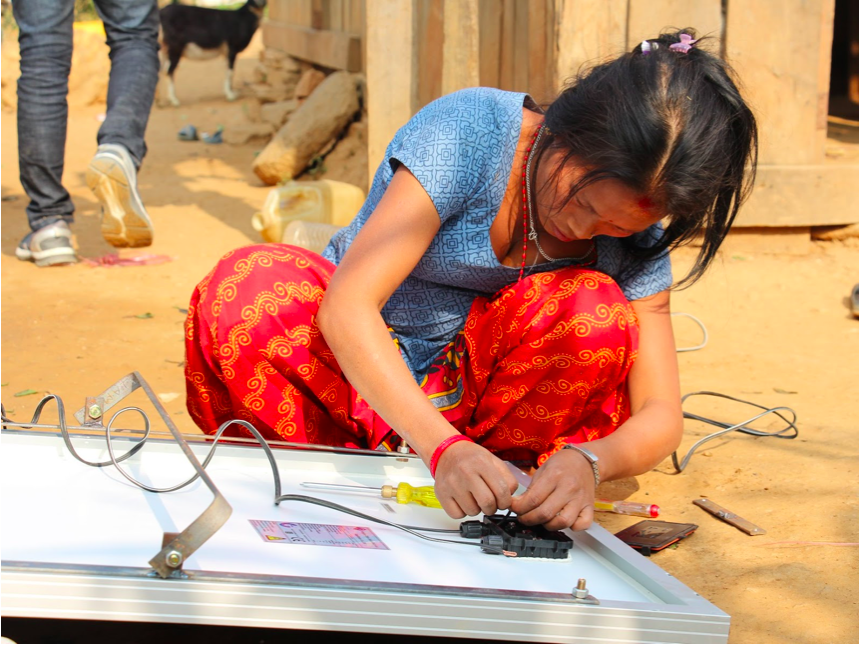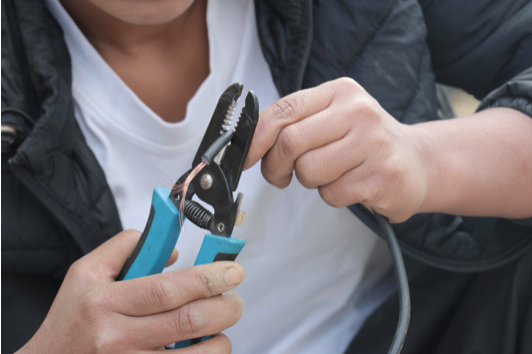
enough to become aware of the truth for the error, however deep, to disappear, just as it is enough to light a lamp to dispel the darkness of a cave, even if it has been plunged in darkness for millions of years.
Matthieu Ricard, founder of Karuna Shechen
Electricity is not necessary for life, but it enables technological progress and enhances the comfort of people everywhere. Today, 86% of the energy consumed in rural Nepal is generated locally.. Although the country has a large capacity to generate energy through hydropower, only 65% of the population is connected to the national electricity grid. Most of the population lives in rural areas andthe rugged terrain and weather conditions of Nepal , make it difficult to access electricity there.. Although the Nepalese government has launched an electrification program for remote areas , unstable political and economic situations impede significant progress..
Electricity : What is the impact on the living conditions of the villagers?
In rural Nepal villagers often burn wood, kerosene, and animal excrement to cook food, which has a negative impact on the health and livelihood of villagers., especially women and children, who have the greatest exposure to smoke and fumes..Since 2015, Karuna-Shechen has helped villagers by providing them with green electricity. Our Solar Electrification of Rural Villages and Women’s Empowerment programs aim to establish a renewable energy system and create job opportunities for women. . Thus far Solar panels have been distributed to 600 households in the Sindhuli and Solukhumbu regions, and 12 women have learned to install and maintain the panels following their participation in a training program at our office in Kathmandu

Access to solar electricity is radically transforming the living conditions in these villages. Previously rural Nepalis typically ate dinner around 6pm and went to bed , around 8pm, because there was no light after nightfall. . Having electricity now brings more comfort to these families, and contributes to greater unity within the village. Children can do their homework in the evening, cooking and cleaning up after meals is easier and people are able to socialize in the evenings. Many villagers now enjoy a more flexible and less restrictive rhythm of life and a safer environment.
Working for an environmentally friendly world and for the empowerment of women
The rural electrification project has two objectives: to preserve the environment by creating renewable energy and to participate in the empowerment of women.
Traditionally, Nepalese people use “tuki lights”, paraffin lamps, and wood fires to light their homes. These lighting systems produce little light, emit toxic gasses, and are dangerous for villagers. Specifically , they can cause respiratory diseases and fires are common. Solar panels are an alternative that is both environmentally friendly and provides a healthy energy source to households.

For women, acquiring these electrical skills is synonymous with better integration into society. Through their training, they become entrepreneurs, earn a salary and are agents of change in a patriarchal society. They also become role models for other women whose traditional roles are limited to being wives and mothers.. Some men are reticent about the status of female solar technicians and occasionally make fun of the way they climb ladders or use electrical equipment. Nonetheless , gender equality is evolving in Nepal and women are increasingly taking on jobs and responsibilities previously reserved for men. Since many rural men have moved to cities or abroad for jobs, the need for women to do the work their husbands once did has also increased
In villages where there is illumination at night the safety of women has increased. Physical and sexual violence against women is extensive. According to a report by OFPRA (French Office for the Protection of Refugees and Stateless Persons) published in March 2019, 51.9% of married Nepalese women aged 15 to 24 said they had experienced some form of violence in their lifetime. Illuminating villages at night helps reduce assaults and decreases women’s fear of moving through public spaces after sunset.
Solar electrification in rural areas is a long-term project. Through the implementation of renewable and environmentally friendly energy, Karuna-Shechen is working to promote autonomy and independence in communities. With their training as technicians, these women can be role models and pass their knowledge along to the next generation, which will perpetuate reliable and sustainable energy.
